Search
Search Results
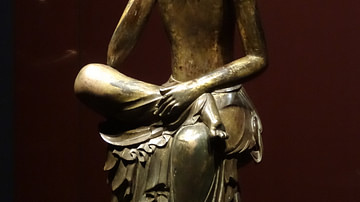
Article
Zen Buddhism in Ancient Korea
Buddhism was introduced from China to ancient Korea in the 4th century BCE and adopted as the official state religion by the Kingdoms of Baekje, Goguryeo, and Silla. The faith split into separate divisions across Asia, one of the most important...

Article
Pizan's The Status of Women & the Reformation
The Book of the City of the Ladies (1405) by Christine de Pizan (l. 1364 - c. 1430) is considered by many scholars to be the first work of feminist literature, predating A Vindication of the Rights of Women (1792) by Mary Wollstonecraft by...

Article
Mondamin
Mondamin (also given as Mon-Daw-Min, The Gift of Corn, and The Origin of Corn) is a tale from the Ojibwe Nation on how the people received corn from the Great Spirit through the vision quest of the young man, Wunzh, and his acts of selflessness...
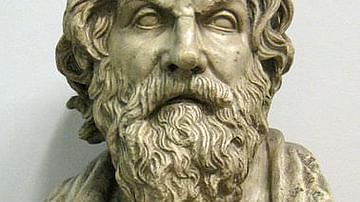
Article
The Life of Antisthenes of Athens in Diogenes Laertius
Antisthenes (c. 445-365 BCE) was a Greek philosopher who founded the Cynic School of Athens. He was a follower of Socrates and appears in Plato's Phaedo as one of those present at Socrates' death. He is one of the primary interlocutors in...
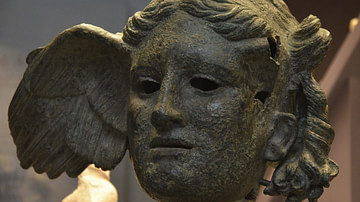
Definition
Mythology
Myths are a part of every culture in the world and are used to explain natural phenomena, where a people came from and how their civilization developed, and why things happen as they do. At their most basic level, myths comfort by giving...

Definition
Pythagoras
Pythagoras (l.c. 571 to c. 497 BCE) was a Greek philosopher whose teachings emphasized the immortality and transmigration of the soul (reincarnation), virtuous, humane behavior toward all living things, and the concept of "number" as truth...
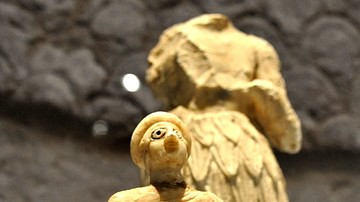
Definition
Religion in the Ancient World
Religion (from the Latin Religio, meaning 'restraint,' or Relegere, according to Cicero, meaning 'to repeat, to read again,' or, most likely, Religionem, 'to show respect for what is sacred') is an organized system of beliefs and practices...

Definition
Bhagavad Gita
The Bhagavad Gita (“Song of God” or “Song of the Lord”) is among the most important religious texts of Hinduism and easily the best known. It has been quoted by writers, poets, scientists, theologians, and philosophers – among others – for...

Definition
Mahayana Buddhism
Mahayana Buddhism is the largest Buddhist sect in the world, and its beliefs and practices are what most non-adherents recognize as "Buddhism" in the modern era. It developed as a school of thought sometime after 383 BCE, possibly from the...
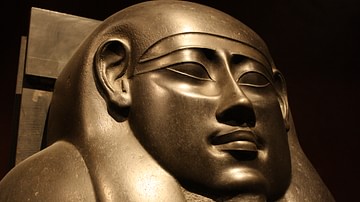
Definition
Ancient Egyptian Art
The artworks of ancient Egypt have fascinated people for thousands of years. The early Greek and later Roman artists were influenced by Egyptian techniques and their art would inspire those of other cultures up to the present day. Many artists...